Oceans
-
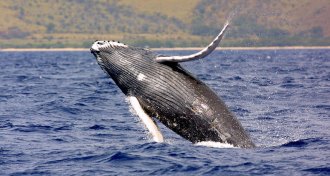 Animals
AnimalsHumpback whale bumps have marine biologists stumped
Christine Gabriele is taking tissue samples from humpback whales in Hawaii to determine why more and more have nodular dermatitis.
-
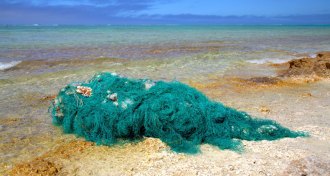 Environment
EnvironmentThe great Pacific garbage patch may be 16 times as massive as we thought
The giant garbage patch between Hawaii and California weighs at least 79,000 tons, a new estimate suggests.
-
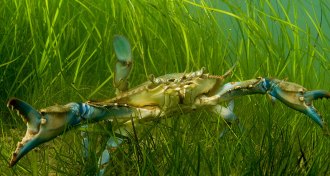 Ecosystems
EcosystemsPollution regulations help Chesapeake Bay seagrass rebound
Regulations that have reduced nitrogen runoff into the Chesapeake Bay are driving the recovery of underwater vegetation.
-
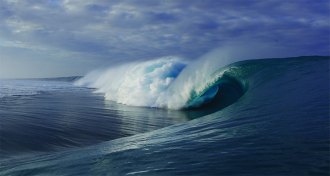 Earth
EarthBy 2100, damaged corals may let waves twice as tall as today’s reach coasts
Structurally complex coral reefs can defend coasts against waves, even as sea levels rise.
-
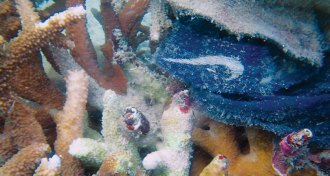 Environment
EnvironmentPlastic pollution increases risk of devastating disease in corals
Researchers estimate about 11 billion pieces of plastic are polluting Asia-Pacific corals, raising the risk of disease at scores of reefs.
By Dan Garisto -
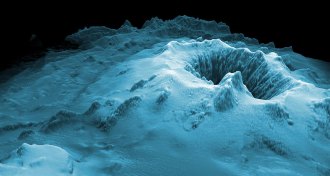 Earth
EarthRobots map largest underwater volcanic eruption in 100 years
High-resolution mapping of a 2012 underwater volcanic eruption just goes to show there’s a lot we don’t know about deep-sea volcanism.
-
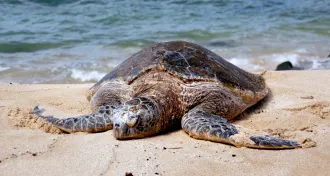 Climate
ClimateWarming ocean water is turning 99 percent of these sea turtles female
Green sea turtle populations in part of the Great Barrier Reef are becoming increasingly female due to higher ocean temperatures.
-
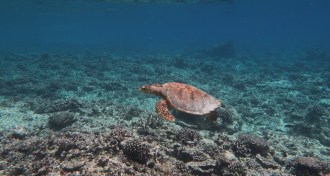 Oceans
OceansCorals are severely bleaching five times as often as in 1980
Corals are now bleaching more frequently and severely than they were in the early 1980s.
-
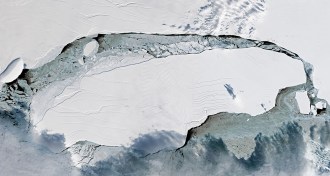 Climate
ClimateThe Larsen C ice shelf break has sparked groundbreaking research
The hubbub over the iceberg that broke off Larsen C may have died down, but scientists are just getting warmed up to study the aftermath.
-
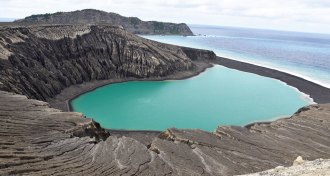 Earth
EarthWatching this newborn island erode could tell us a lot about Mars
The birth and death of a young volcanic island in the Pacific Ocean may shed light on the origins of volcanoes in Mars’ wetter past.
-
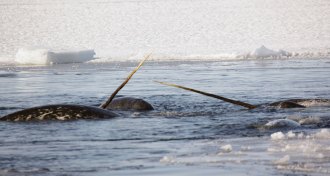 Animals
AnimalsNarwhals react to certain dangers in a really strange way
After escaping a net, narwhals significantly lower their heart rate while diving quickly to get away from humans.
-
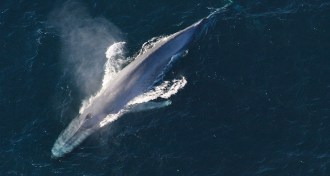 Animals
AnimalsMost blue whales are ‘righties,’ except for this one move
Though many blue whales tend to be “right-handed” when hunting for krill, one specific barrel roll move requires a lefty twist.